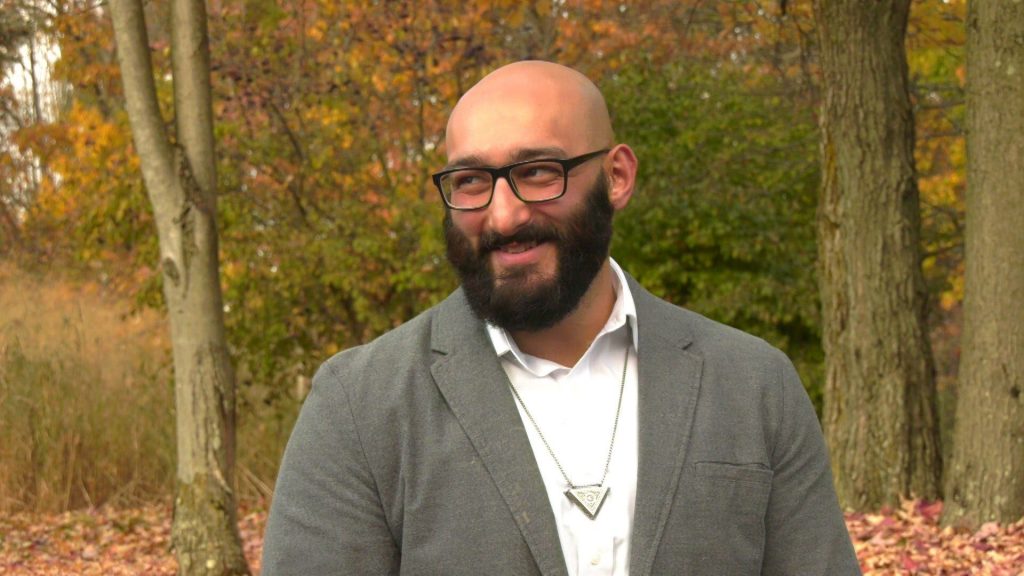As hundreds of Afghan children were airlifted out of Afghanistan to the United States, one Binghamton University employee sought to make a profound impact in their lives.
Amir Aslamkhan, a security services assistant for Binghamton’s New York State University Police (UPD), is one of many Americans who traveled to Michigan to assist incoming refugees from Afghanistan. Aslamkhan, an Afghan American, took a two-month, unpaid leave from his job at the University to serve as an interpreter for unaccompanied Afghan children refugees. This was in response to the Taliban’s takeover of the Afghan government in August following the full withdrawal of U.S. troops from the country after 20 years of occupation. The Taliban’s takeover of Kabul, the capital of Afghanistan, forced tens of thousands to flee the country.
As an interpreter, Aslamkhan was tasked with assisting Afghan minors with their education, talking to doctors, lawyers and government officials and overall bridging the gap between Afghan and American culture, like teaching the children about new foods. He worked in one of over a dozen emergency intake sites established by the U.S. Department of Health and Human Services (HHS), which altogether holds 201 minors according to a CNN report. The HHS is responsible for the refugees in these sites until a sponsor, usually a parent and relative in the United States, is able to take them.
Aslamkhan was born and raised in Queens, New York in an Afghan household where he learned to speak Dari, one of the major languages in Afghanistan. He moved with his mother, an Afghan linguist for the U.S. Department of Defense, from Staten Island, New York to Binghamton when he was 16 years old, as his mother had friends in the area.
Though Aslamkhan was unable to share many details of his work, he did speak on how he was recruited to be an interpreter.
“I was proactively looking for ways to help out the situation and I was eventually contacted by a company since I put it out that I was fluent in Dari,” Aslamkhan said in a press conference. “It was very rapid and short notice. I let [UPD Chief John Pelletier] and the University know that I am passionate about this and want to assist with this. They agreed and then I went to Michigan to help out.”
While Aslamkhan has never been to Afghanistan, he said it was a no-brainer to help the refugee children as their situation reminded him of his roots and his family’s journey to America.
“This is one of those rare situations where income, location and comfort level does not matter,” Aslamkhan said. “This is something that I was very passionate about — just being about to give back to my people. My mother and family were in very similar situations when they immigrated here during the Soviet-Afghan War. So it really hit close to home for me.”
While Aslamkhan’s immediate family is in the United States, he still has uncles, aunts and cousins in Kabul. He said his relatives are doing fine and are in constant contact with him but he is saddened by the situation in the country.
“Especially when I first saw the news coming out [of Afghanistan], it was absolutely heartbreaking,” Aslamkhan said. “I don’t think anyone, doesn’t matter what country of origin, race, religion or political view, can view what is happening and not have some sort of heartache. One of the biggest things for me personally is mental health services and women’s rights and to see 20 years of progress getting taken away in a matter of weeks is really heartbreaking.”
Nevertheless, Aslamkhan’s work as an interpreter not only aimed to make a profound impact for the minors he assisted but also allowed him to reconnect to his heritage, something he said he is not able to do in Binghamton often.
“My takeaway personally was that [interpreting] helped me reconnect with my culture,” he said. “It helped me reconnect with my people, my language and my religion. It was a reminder that I do come from a great country, as much turmoil there has been over the decades, and reminds me how much these kids want to grow to be contributors to society. [They] are the future doctors, researchers, lawyers and sports players.”
Aslamkhan does not plan on stopping his work with incoming Afghan refugees. He hopes to incorporate his passion for mental health by providing services for the Afghan families, adults and minors, something he believes is not readily available in Afghanistan.
Aslamkhan left off with a message for any refugees from any country that is experiencing a crisis that are struggling to get acclimated with their new homes.
“Have patience and have hope,” Aslamkhan said. “Just do your best learning about the culture you are assimilating with and start creating that fluidity [with your own culture]. Learn the language, find the fastest way to get an education and services and more than anything, have optimism. If you hold on to that word and mindset, I think that will help above anything else.”



